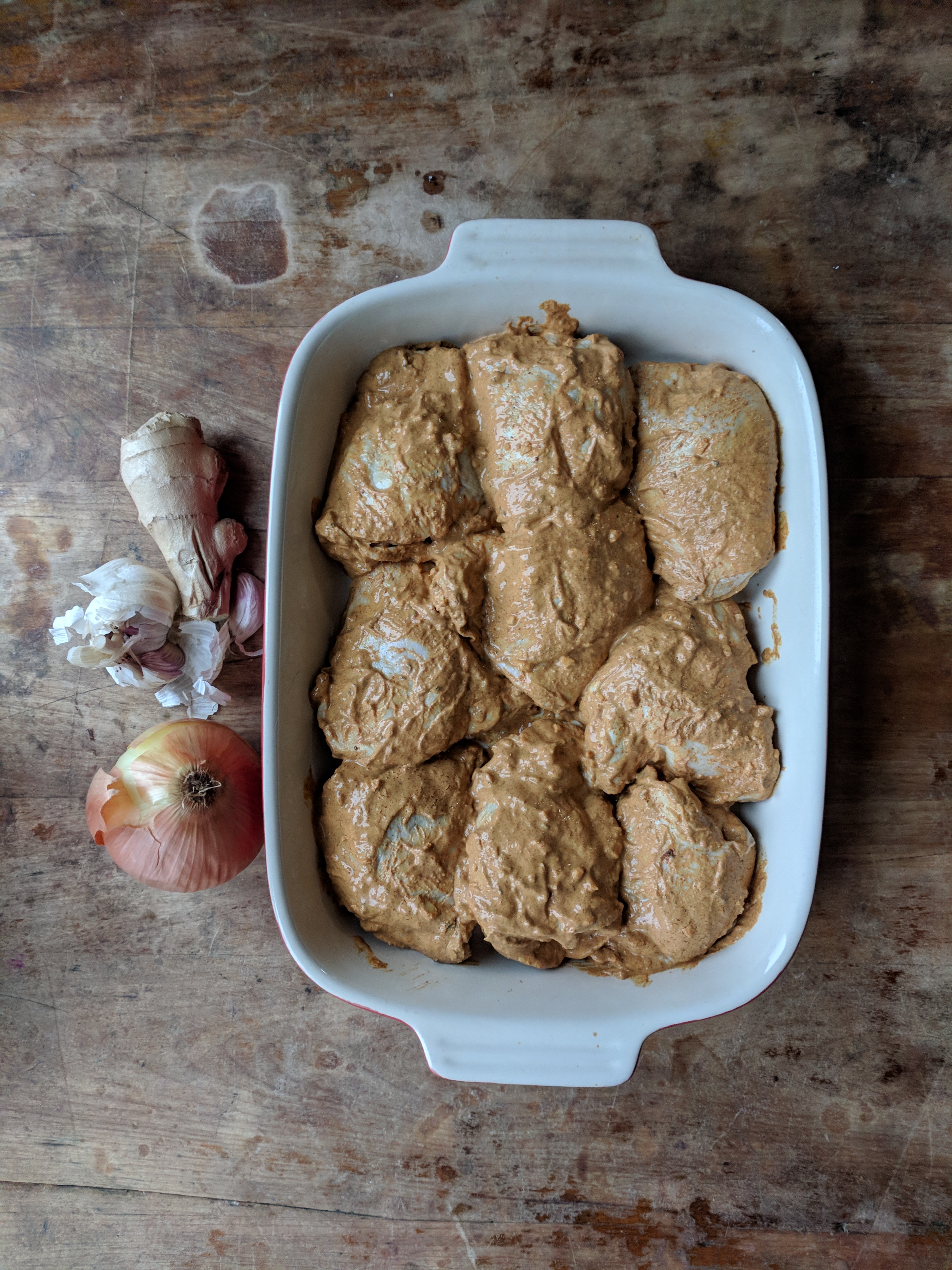Marinades are used to impart flavour to meat and vegetables, and also to tenderize meat. A marinade can be wet or dry and would typically either have a water, acid, oil, sugar, or salt base. How do marinades work? How long should something be marinated? How do you decide what type of marinade to use? Find out below in an in depth guide to marinades.
How do marinades work?
Acids like vinegar, yogurt, or citrus juices work to break down muscle tissue causing a tenderizing effect. This tenderizing of the muscle fibers allows them to absorb small amounts of the marinade distributing flavour throughout the piece of meat. Water or oil based marinades flavour only the surface of the item being marinated unless an amount of salt or acid is included in the recipe. Salt and sugar draw moisture to the surface of meat which then absorbs flavour. In order to find an equilibrium the muscle fibers will then absorb that liquid back into the meat. If too much salt or sugar is used, or if the meat is left to marinate for too long, too much moisture will be drawn out, and the item will be cured instead of marinated.
Dry Marinades
Salt could be considered the star of most dry marinades, because of this it is important to use a high quality salt. Iodized table salt, has a harsh flavour which would transfer to the item being marinated. Kosher salt, or sea salt would typically be the better options.
When making a dry marinade that includes sugar, try and stick to a two to one ratio. Two parts salt, one part sugar. Brown sugar would be the more common choice but white sugar could be used as well. White sugar will provide a more intense up front sweetness while brown sugar offers a more subtle caramel flavour.
The herbs and spices you choose for your dry marinade depend on multiple factors. What are you marinating? What flavour are you looking for? How will the item be cooked? Some spices go better with pork than they do with beef. Pretty much everything goes with chicken. Some fish has a delicate flavour which can be easily overpowered by strong spices.
Pretty much any herb or spice can used in a dry marinade. However, try and avoid soft herbs like sage if the item will be cooked over direct heat. Soft herbs and some spices such as cinnamon can become bitter if over exposed to heat. Really, it’s up to you.
Wet Marinades
Water, wine, vinegar, yogurt, buttermilk, or oil. How do you choose? Again, it comes down to the item being marinated, and the flavour you want to impart.
A water based marinade would be more often considered a brine. This would be a solution of water and salt, possibly sugar as well. To this, whole herbs and spices could be added. Brines are great for items that are prone to drying out when cooked such as whole turkeys, or ribs. The salt in the brine cause an expansion of the cells within the meat allowing them to absorb and retain more moisture. The result of this is a much juicier piece of meat.
Acid based marinades such as those made with wine, vinegar, yogurt, buttermilk, or citrus juice have more of a tenderizing effect than other marinades. The acid breaks down muscle fibers which allows flavour to more easily penetrate the surface. However, if too high a proportion of acid is used in the marinade, or the item is left to marinate for too long, the acid can have the opposite effect. Essentially, the acid cooks the protein. This can be seen in items like ceviche, where the seafood is toughened by the acid as opposed to softened.
Oil based marinades simply coat the surface of the item. These types of marinades are better suited to vegetables than to meat. However, some oil based marinades like chimichurri, that are loaded with herbs and spices are great for marinating meat.
Time
How long should you marinate something?
The amount of time an item should be marinated depends on its size, and the strength and type of marinade being used. Items can sit in oil based marinades for long periods of time with little to no ill effects. A marinade that has a high acid content can start to toughen protein in a few hours.
Generally, a few hours to overnight is a perfectly reasonable amount of time to marinade anything. Any more and you risk quality. Any less and it is seemingly pointless.
The right marinade for the job.
Choosing the right marinade for the job is crucial to getting the most flavour and the best texture out of your meat. Think about what you want the marinade to do. Does the item need to be tenderized? Do you want the flavour to be distributed throughout the entire item? Are you trying to retain moisture?
It is very difficult to go wrong when choosing your marinade. There are rarely wrong choices. Just keep in mind the above information and get cooking.

0 Comments
Trackbacks/Pingbacks